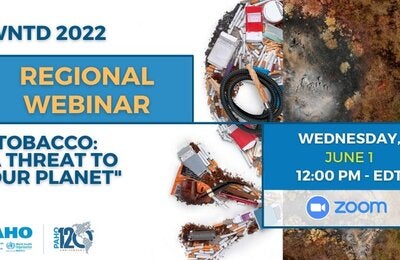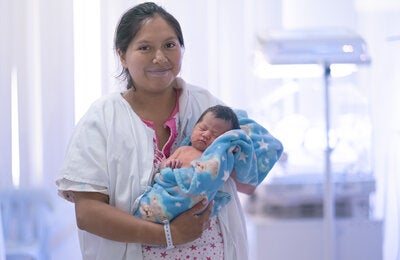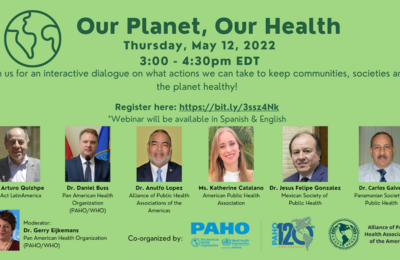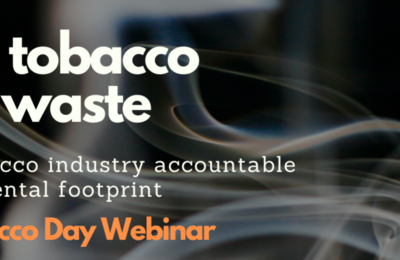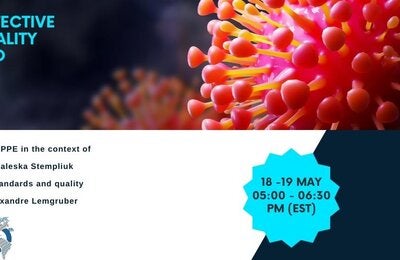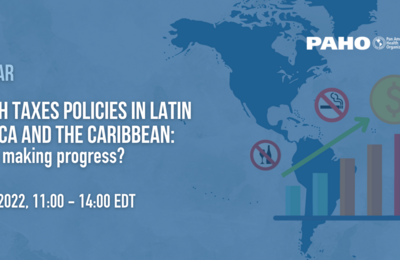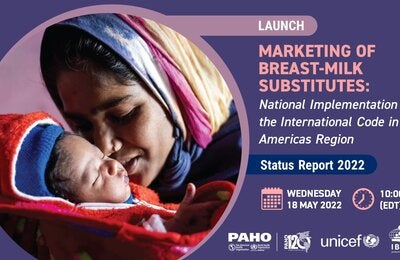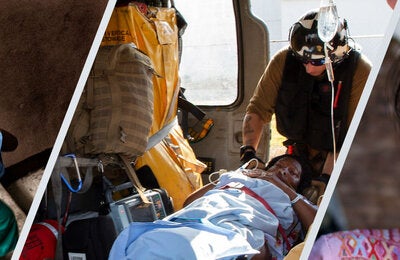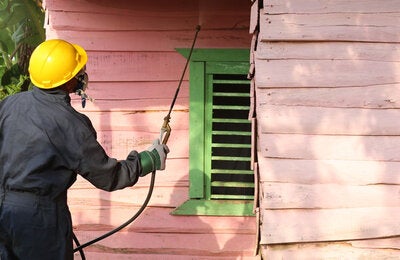In line with 2022 World No Tobacco Day: Poisoning our Planet, PAHO will be hosting the Regional Webinar, Tobacco, a threat to our planet, on June 1, 2022 at 12:00pm EDT.
Webinars
In the framework of the International Day of Action for Women's Health, CLAP invites you to the webinar that addresses successful experiences of implementing respectful maternity care in health centers. The virtual meeting aims to serve as a guide for professionals searching for a dignified and respectful treatment of women attending health institutions in Latin America and the Caribbean and…
Join us on Friday, May 20, for the World Breastfeeding Protection Day webinar to discuss the impact of marketing breastmilk substitutes on infant feeding decisions and the advances and challenges of implementing the International Code of Marketing of Breast-milk Substitutes in the countries.
In line with 2022 World No Tobacco Day: Poisoning our Planet, the World Health Organization is hosting a webinar in light of World No Tobacco Day 2022 entitled Fighting Tobacco Product Waste.
Learn more about "Personal protective equipment, quality standards, and correct use”. This workshop was hosted by PAHO on May 18 and 19, 2022. You can watch the video here.
Topics
Background
In Latin America and the Caribbean, progress in the use of excise taxes on tobacco, alcohol, and sugar-sweetened beverages (SSB) as a measure to improve health has varied. The greatest progress has been made in tobacco taxes, where both globally, and in the region, there is abundant evidence of their effectiveness in reducing…
Join us on Wednesday, 18 May 2022, at 10:00 a.m.
Tuesday June 14, 2022
11:00 AM EST
Register in Zoom - There will be interpretation available in Spanish, Portuguese and sign language.
With the support of the Social Innovation in Health Initiative (SIHI), BMJ Innovations and its partner publications launch this special supplement focused on social innovation for health that shows how social innovations can positively affect health and social outcomes, drive more resilient health systems, engage communities, and help achieve universal health.

